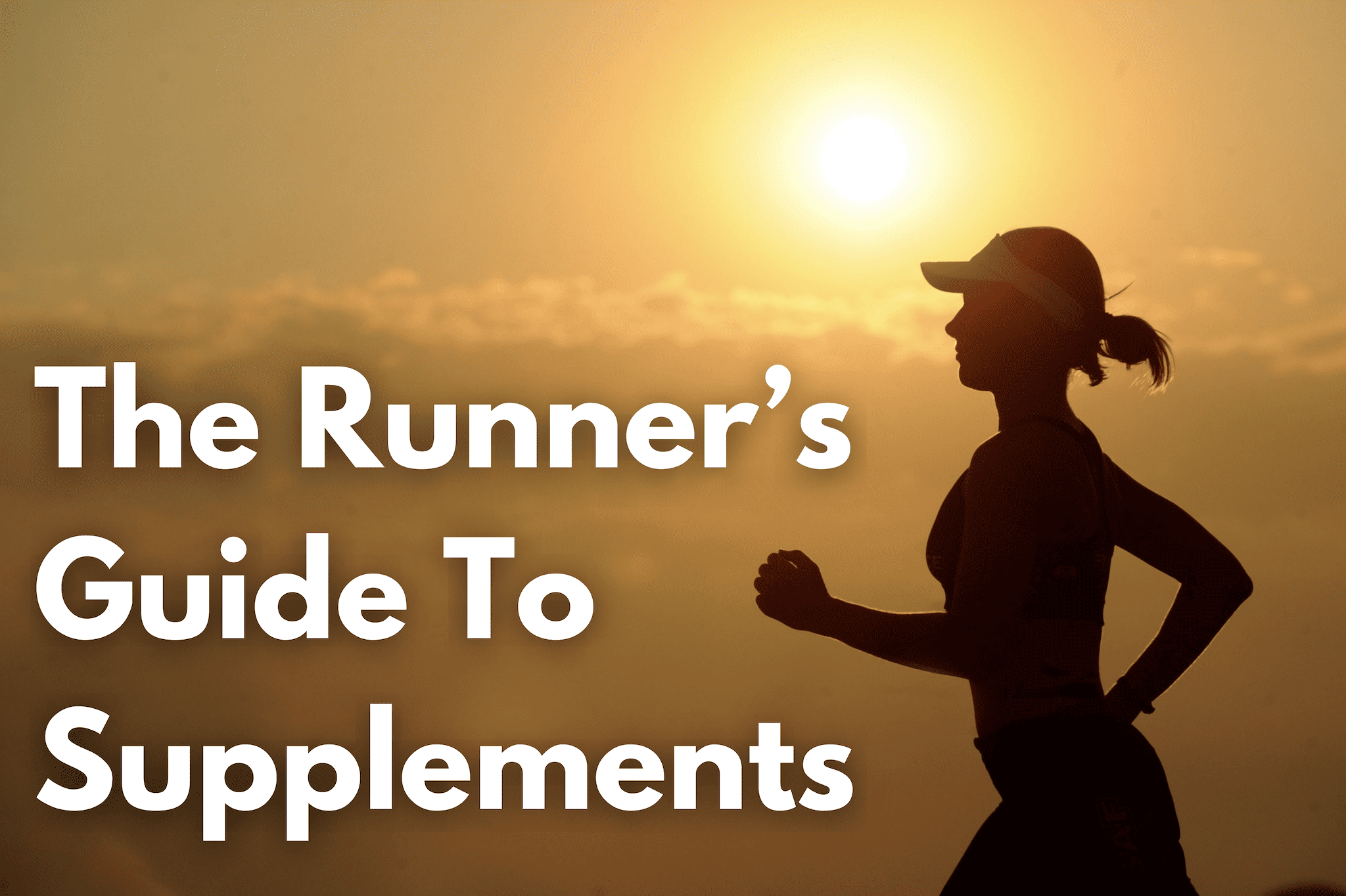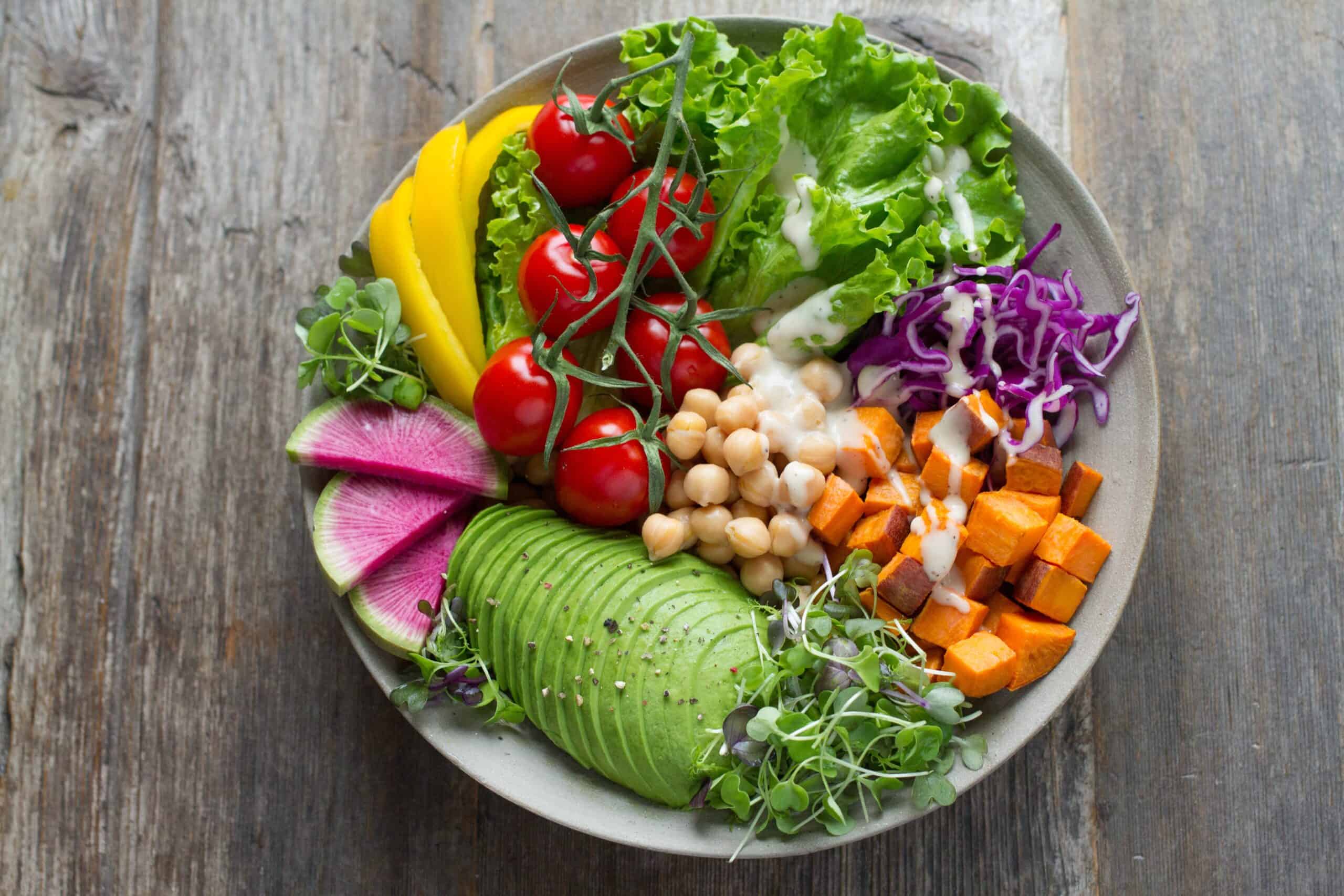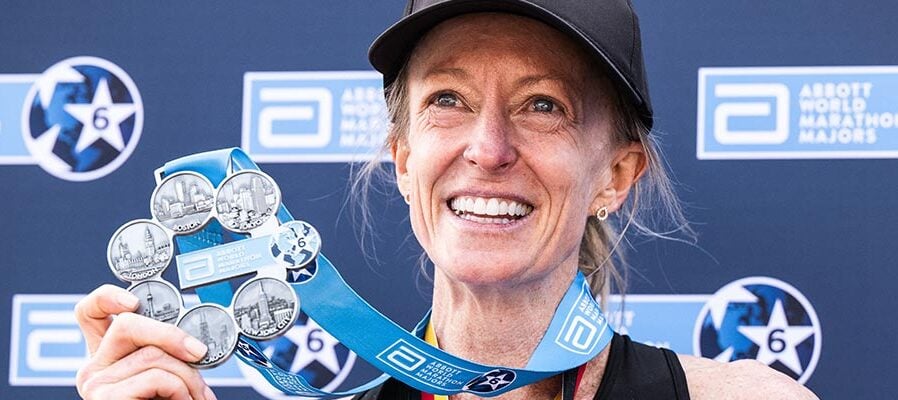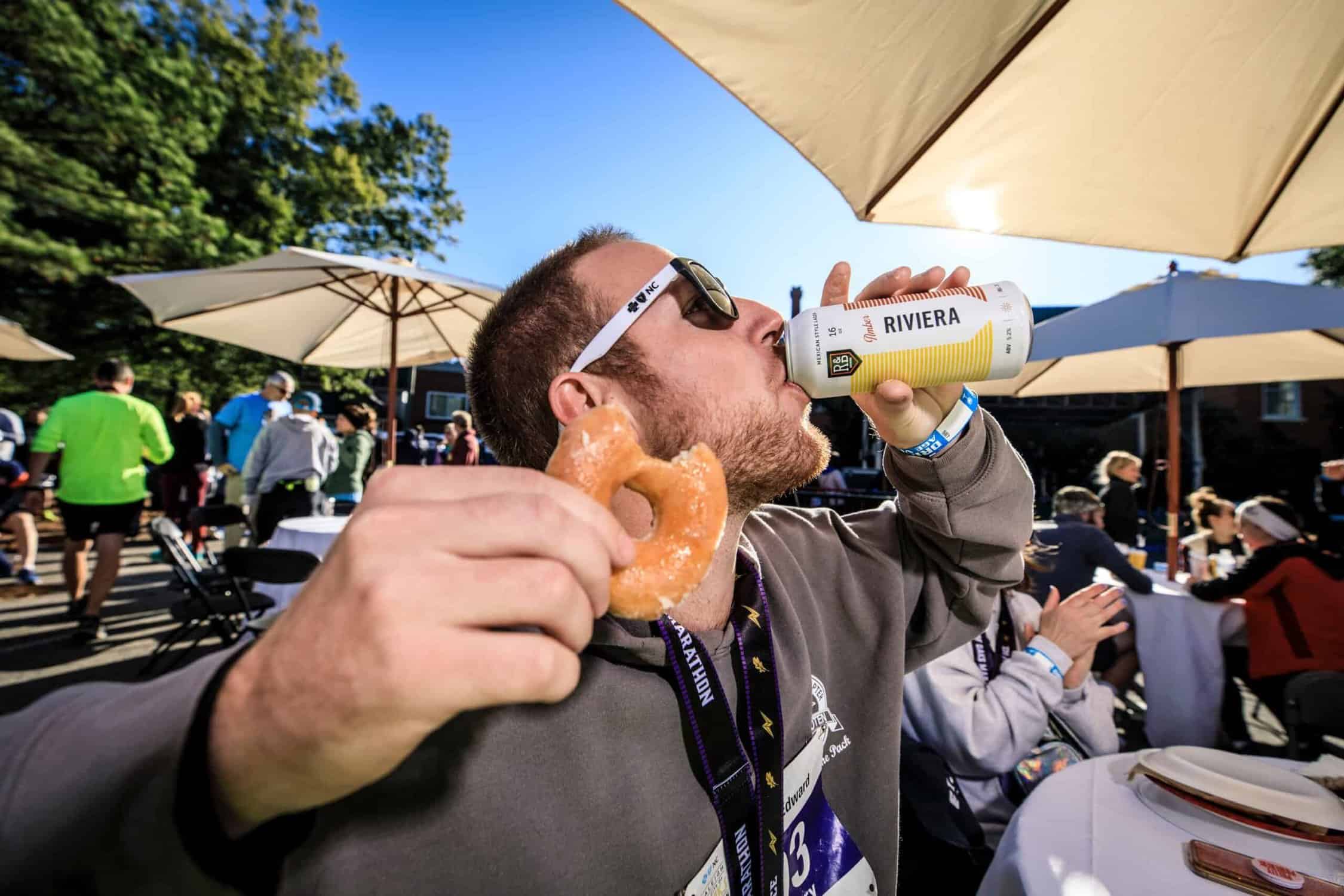I owe the improvements in my athletic performance in the last year to the use of supplements. By combining my nutrient-rich diet, adequate sleep and proper training with supplements – I’ve found meaningful improvements in maintaining maintaining my body’s equilibrium. My routine of supplements for runners have yielded more restful rest days and more impactful training days.
I’ve incorporated a range of supplements into my own sports nutrition and into many of my client’s diets, particularly during more rigorous training phases.
As a Registered Dietitian, here’s my insights into:
- The most valuable running supplements for runners and other endurance athletes
- How to know if you should be taking those supplements
- When and what types of supplements for runners improve performance and recovery
- Which supplements might make the most sense to avoid

Do runners need to take supplements?
No. Of course not. Not everyone needs supplements. Supplement, by definition, means something that enhances when added.
Supplements should not replace a healthy diet. Instead, supplements for runners are intended to be taken to complement your dietary intake.
For runners, the most important thing you can do for your running performance in the kitchen is maintain a balanced diet dominant in whole foods.
Related: The 20 Best Snacks for Runners
Your diet should be mindful of caloric requirements and macro-nutrient requirements (carbohydrates, fats, and proteins) during your training cycle.
Supplements won’t have benefits to any athlete that does not have a strong nutritional foundation.
What are the benefits of taking running supplements?
Certain dietary supplements can enhance endurance, speed, and overall athletic performance, such as glucose and caffeine.
Certain supplements, like protein-based supplements (especially branched chain amino acids, or BCAAs) can aid in muscle running recovery and repair after intense workouts, reducing soreness, promoting faster healing, and preventing injury.
Electrolyte-rich supplements, energy running gels, or hydration tablets can help replenish the minerals lost through sweat during runs, maintaining proper hydration levels and preventing cramps.
And supplements like beta-alanine can delay the buildup of lactic acid, reducing muscle fatigue and potentially extending your endurance during runs.
7 Common Dietary Supplements for Runners

Every individual has a different biochemistry. In your annual visit to your physician, a blood test will afford you clarity into what levels of these vitamins you maintain.
If you have above average Vitamin D in your system, you shouldn’t be taking a supplement.
These are some of the most common supplements in the runner community. Many of these vitamins and minerals are found in a balanced diet.
But, if you find that even with diet improvements, you still lack certain essential vitamins and minerals, consider investigating and investing in our recommendations.
Vitamin B12
Vitamin B12 is essential for converting food into energy.
As a runner, your body requires a massive energy supply to be used effectively in converting calories into to fuel your workouts and maintain endurance.
B12 contributes to the energy production process. B12 is also necessary for the production of healthy red blood cells, maintaining a healthy nervous system, and protein synthesis.
Vitamin B12 is most commonly found in high concentrations in animal products. This includes meat, fish, dairy and eggs. Therefore, physicians, coaches and nutritionists recommend Vitamin B12 supplements most commonly for vegan or vegetarian runners.
The recommended daily intake of Vitamin B12 for adults is 2.4 micrograms.
What is the best B12 supplement for runners? Nature Made B12 1000mcg Soft Gels.
Vitamin D
Vitamin D is vital to the absorption of calcium. Without proper amounts of Vitamin D in the body, calcium you eat is turned into waste and peed out.
This is important in the context of bone health. If your body cannot maintain calcium and the density of bones required for running, according to this study from the National Library of Medicine, you are more likely to incur stress fractures.
Vitamin D is also required for the production and normal function of many hormones. Vitamin D also regulates inflammation and supports the immune system.
If not acquired naturally, you should take an 800IU supplement of vitamin D every day.
What is the best Vitamin D supplement for runners? Kirkland Signature Extra Strength D3.
Omega-3
Omega-3 fatty acids, particularly EPA (eicosapentaenoic acid) and DHA (docosahexaenoic acid), have anti-inflammatory and antioxidant effects.
In fact, it has been suggested that eating 1-2g/day EPA and DHA at a ratio of EPA to DHA of 2:1 may be beneficial in counteracting exercise-induced inflammation from running, reducing the risk of injuries.
Omega-3 is found naturally in foods like fatty fish (salmon, mackerel, sardines, anchovies). You can also find Omega-3s in nuts and legumes like walnuts, chia seeds, and flax seeds.
If you don’t eat one of these foods as part of your regular diet, consider a daily omega-3 fish oil supplement that contains EPA and DHA in a 2:1 ratio.
What is the best omega-3 fatty acid supplement for runners? Jarrow Formulas.
Iron
Iron is extremely important especially for female athletes.
The mineral plays a role in the creation of hemoglobin, the molecule responsible for transporting oxygen throughout the body. Iron deficiency can lead to anemia, a condition characterized by fatigue, weakness, paleness, and poor athletic performance.
Iron deficiency is very common among long-distance runners, particularly among vegan, vegetarian, and pre-menopausal females.
Every time your foot strikes the ground in running shoes, hemolysis occurs causing damage to the blood cells due to the pressure.
This damage reduces the number of viable red blood cells, increasing the risk of anemia for runners. And every time you bleed (i.e. during a menstrual period) you lose a ton of iron too.
Studies have found that runners with iron deficiency run slower and are fatigued.
Personally, when I discovered I had incredibly low iron levels and started taking a supplement, my performance improved.
Check your iron levels annually. Prioritize eating iron-rich foods. Cook with a cast-iron skillet, and take a high-quality supplement with Vitamin C that will improve the absorption of Iron.
What is the best iron supplement for runners? MegaFood Blood Builder with Vitamin C.
Calcium
Calcium (along with Vitamin D, of course) is one of the most important minerals for runners.
This vitamin is critical for the structural components of bones, muscle contraction, nerve conduction, cardiovascular health, and the synthesis of various enzymes and hormones.
Adults need 1000mg of calcium daily. To ensure you’re getting enough calcium as a runner, incorporate calcium-rich foods into your diet every single day, such as dairy products (milk, yogurt, cheese), leafy green vegetables (kale, spinach), fortified plant-based milk, and calcium-fortified foods.
You might also consider taking a supplement that combines calcium AND vitamin D to maximize both micronutrients’ effects.
What is the best calcium supplement for runners? Jamieson Calcium and Vitamin D
Magnesium
Magnesium is one of the most important electrolyte supplements.
It transports calcium and potassium across cell membranes in order to maintain a heartbeat, nerve impulses, and muscle contractions.
Almost 50% of adults in the United States do not meet the recommended daily allowance of magnesium, which is around 400 mg. As a runner, you are particularly prone to magnesium deficiencies due to the excess loss of magnesium in sweat. Most electrolytes used during running are meant to replace magnesium losses.
Magnesium will help with muscle cramps, reduce the risk of bone fracture, and will increase the absorption of calcium.
What is the best magnesium supplement for runners? BioEmblem Triple Magnesium Complex
L-Theanine
L-Theanine is an amino acid found naturally in tea that can reduce anxiety, insomnia, and reduce blood pressure.
Sleep is a cornerstone of every runner’s training and recovery protocol.
A 2019 study showed that participants who took L-Theanine had elevated levels of GABA, serotonin, and dopamine – enabling a higher-quality sleep.
What’s the best L-Theanine supplement for runners? Jarrow Formulas 200mg
7 Supplements for Runners To Enhance Performance

Beetroot
Beetroot contains nitrates that raise nitric oxide levels in the body, improving aerobic exercise performance by increasing blood flow to working muscles
Add roasted beets to a salad, blending canned beets into a smoothie, drink beetroot juice, or take beetroot supplements (available on Amazon).
Beetroot tends to be dosed on nitrate content. You should aim for 300-600 mg nitrate/day taken 2-3 hours before exercise.
Beta-Alanine
This is an amino acid that can reduce lactic acid build-up in muscles, which – I’m sure you’re very familiar with lactic acid at this point – will impair performance and cause fatigue.
Beta-alanine comes as a powder or capsule. Experts recommend a daily intake of 4-6 g/day (taken in doses of 2 g or less) for up to 8 weeks for athletes.
Protein Powder
Protein powder is used across many different athletic disciplines for muscle recovery and reducing muscle soreness.
Research shows that post-workout protein intake enhances post-run recovery, and boosts muscle mass, muscle growth, and strength.
In any type of running nutrition plan, the daily requirements of protein in an athletes diet is somewhere around 1.2g per every kg of body weight. It may be easier to meet this requirement with protein supplementation.
For optimal recovery, take 20-40 grams of protein of high-quality (ideally whey protein, or any other complete protein) within 30 minutes following exercise.
Tart Cherry Juice
This juice can enhance running performance, alleviate pain and discomfort, destroy free radicals, and enhance recovery after both endurance and strength workouts.
Tart cherry supplements are available in juices, capsules, and concentrates. In a meta-analysis, it was found that tart cherry concentrate in juice or powdered form, ingested for 7 days significantly improved endurance exercise performance
Probiotics
Studies have found that runners who took a probiotic supplement for one month leading up to their marathon had reduced GI symptoms during the marathon. Not only are probiotics great for gut health, but also for marathon performance!
Try a high-quality probiotic such as Seed DS-01 Daily Synbiotic.
Creatine
Creatine for runners is one of the most popular training supplements on the market. While you may have heard of creatine first within the body building community, it’s become more popular among endurance runners to support recovery.
Creatine can boost muscle growth, speed up glycogen replenishment, and reduce muscle soreness.
The downsides of creatine is that it can make you retain more water and gain a little weight which may impact your running form or performance.
To use creatine, experts recommend starting with a “loading dose” of 20 grams per day for 5-7 days, and then maintaining it at 3-5 grams per day after that.
Try Amazon’s most popular Nutricost.
Sodium Phosphate
Sodium phosphate is a popular supplement among both sprinters and distance runners.
It’s believed to improve the transportation of oxygen and reduce the negative effects of lactic acid buildup. This can boost your aerobic and anaerobic capacity, increase power output, and improve your cardiovascular response.
Research has shown that taking 4 grams per day for three days can enhance the energy system that relies on oxygen, especially for mid-to-long-distance runners
You can find sodium phosphate supplements in capsule form, and the recommended dosage for athletes is 3-5 grams per day. It’s best to split this into four smaller doses and take it for 3-6 days.
FAQ about Supplements for Runners
It depends. Some athletes use pre-workout containing caffeine and amino acids to boost energy, focus, and endurance before a run. I recommend 8oz beetroot juice taken 2-3 hours before exercise.
Caffeine-based pre-workouts can take effect within 15-45 minutes. Others, like vitamin B12 or iron supplements take a few days/weeks to work.
Vitamin B12, iron, vitamin D, magnesium, calcium, omega-3, beetroot, beta-alanine, protein powder, and tart cherry juice are the best supplements for running.
Elite athletes certainly take supplements but they need to be extra cautious about the supplements they use due to anti-doping regulations. Some might contain banned substances so rigorous testing is required.
Vitamin B12 and vitamin D are the best vitamins for distance runners. You might consider a multivitamin as well to reduce the amount of capsules needed.
In the hour before a run, eat 1 gram of carbs per kg of body weight. Choose easily digestible carbohydrates that won’t sit heavily in your stomach. Opt for things like a banana, a small energy bar, a piece of toast with jam, or a few handfuls of dry cereal or granola at the very least.
Runners should eat easily digestible carbohydrates that won’t cause discomfort during long runs. As a general rule, you should avoid high fat foods like bacon, sausages, and cheeses that might not sit well while running.
Vitamin B12, iron, vitamin D, magnesium, calcium, omega-3, beetroot, beta-alanine, protein powder, and tart cherry juice are some good supplements for runners.
If you are a sprinter or high-intensity runner, creatine might make you run faster.
Creatine has muscle building effects but can cause water retention and weight gain (1-2 kg) in athletes which could hinder endurance running performance. Because of this, creatine will likely be most beneficial to you if you want to increase your sprinting speed.





